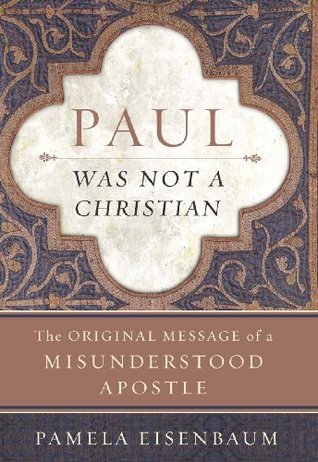More on this book
Kindle Notes & Highlights
Read between
December 7, 2023 - January 2, 2024
Two-ways salvation is a designation used to critique the interpretation of Romans 9–11 offered by some radical-new-perspective scholars. It refers to the view that interprets Paul as saying there are two different ways to salvation, Torah for Jews, Jesus for Gentiles. The charge of “two-ways salvation” is meant to suggest incredulity that Paul would have ever envisioned more than one way to salvation. Paul’s commitment to Christ is so all-encompassing that he never would have intended to say any such thing.
for those who want an answer to the question, Does Paul really think there are two ways to salvation? my answer is yes, for those who see Paul from within the traditional paradigm; it is no for those in the new paradigm.
But part of being put right means faithfully participating in the redemption under way, and there is no reason why the participants all need to have the same role to be faithful participants.
As Krister Stendahl said in response to the question of two-ways salvation, it is God’s “traffic plan” for how redemption is realized.3
It is the big sins of the world that need to be accounted for.
The problem that emerged, and the reason Paul has critical things to say about Israel in Romans 9–11, is that Israel had failed to live up to her appointed role as the light to the nations.
The problem is that Israel is not heeding the words of the Torah carefully enough.
And because Israel did not recognize what God was doing, she was not functioning as the light to the nations that Isaiah had prophesied.
Just as God hardened Pharaoh’s heart in order that God’s name would be known throughout the world, so now God is hardening Israel’s heart in order to protract the timetable for redemption, thus giving more time for the nations to respond to God’s call for redemption through Jesus. Israel’s failure means greater mercy for Gentiles.
it would be hard to deny that Paul’s vision of redemption is expansive, if not universal.
Interestingly, Paul never seems to give up on the language of Jew and Gentile, in spite of this vision. He envisions all the various nations coming together to dwell in the new creation as children of God, but they are included in their variety as different peoples. In other words, Paul does not collapse Jew and Gentile into one generic mass of humanity.5
For discussion of the role astronomy plays in Abraham’s “conversion” to monotheism in postbiblical tradition, with special attention to Josephus’s account, see Annette Yoshiko Reed, “Abraham as Chaldean Scientist and Father of the Jews: Josephus, Ant. 1.154–168, and the Greco-Roman Discourse


